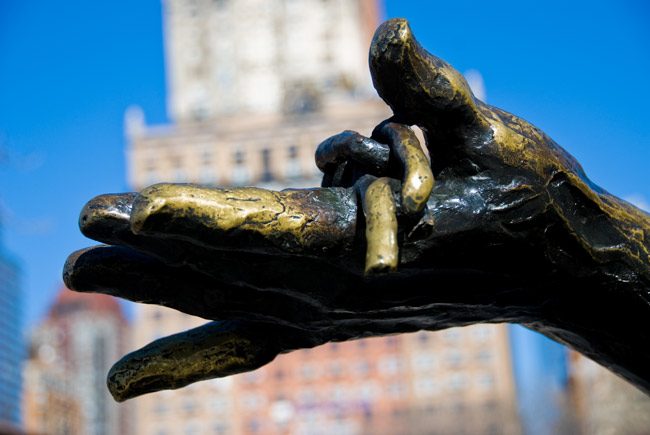
The years-long fight to ban so-called sanctuary cities is poised to pass a significant hurdle in the Florida Senate, after a key lawmaker agreed Monday to a watered-down version of the controversial bill.
Following an hour of tearful testimony from undocumented immigrants and their children, Senate Judiciary Chairman David Simmons postponed a vote on a measure that would require local police to fully comply with federal immigration authorities. The proposal (SB 168) would also allow foreign-born detainees to be transferred to federal custody after they are released from state or local custody.
Sen. Joe Gruters, who doubles as the chairman of the Republican Party of Florida, is championing the measure. Gruters’ proposal initially included severe penalties — such as removal from office — for local officials who approve so-called sanctuary city ordinances, a sanction Gov. Ron DeSantis supports.
But, at the behest of Simmons, Gruters agreed to gut the sanctions.
“It’s all gone,” Simmons told The News Service of Florida after the Monday meeting.
Without the penalties, the bill may be more appealing to the Florida Senate, which is viewed as the more moderate chamber and has blocked similar proposals in the past. But the watered-down measure may not be as attractive to those who want to crack down on illegal immigration in the Florida House, where a tougher proposal is being pushed this year.
State Rep. Anthony Sabatini, a Eustis Republican who is one of the co-sponsors of the House bill (HB 527), called having no sanctions “excessive.” But Sabatini, who was elected in November, said he would consider lesser sanctions in exchange for having some type of “sanctuary city” ban in the state.
“Any move forward in creating a prohibition is good, if it is a more mild version on having sanctions, so be it,” Sabatini said in an interview Monday. “But I believe it should be penalized — removal from office, civil fine, perhaps even criminal sanctions for officials who create these policies.”
Sabatini expects the House will sign off on the proposal, as it has for the past two years, during the legislative session that begins March 5.
“It’s one of those bills that we know the Republicans in the House are going to pass,” he added.
The measure’s future in the Senate, however, remains uncertain.
The support of Simmons will help push the proposal through the same committee that killed it the last two years. But some Senate Democrats are raising questions about the constitutionality of the proposal and the financial burden local governments would face when honoring federal immigration detainers.
“It is going to cost money to comply with detainer requests,” Gruters admitted when Democrats on the committee questioned him.
But the Sarasota lawmaker argued the costs would be offset by safer communities. And, he said, local governments can seek reimbursements of $50 a day for up to 48 hours of detention from the federal government.
The committee ran out of time before voting on a revised version of Gruters’ bill, but Simmons pledged to take it up at the panel’s next session. That meeting has not yet been scheduled.
–Ana Ceballos, News Service of Florida





























Dave says
Save Sanctuary Cities! We need our Sanctuary Cities in this Country, and Florida would be better off if we could get some here.
Laura Howell says
All Florida cities should be Sanctuary Cities. It is unsafe for a portion of the population to be afraid to report a crime has happened to them or that they witnessed a crime. It is unsafe for all of us when a portion of the population is concerned about reporting communicable disease or pollution or health hazards because coming forward may put themselves or their family members at risk. In some rural areas, federal compliance can be too big a financial and man power burden and often involves residents who are strong contributors to the community.
Sanctuary does not mean that those held for serious crimes are just let go, it means that the cities don’t take on the federal responsibilities of immigration. Sanctuary cities make sense.